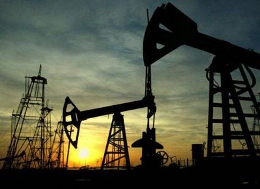 The impact of Western sanctions on Iran�s oil industry in 2012 is clear in new�data released by the US Department of Energy. Its oil exports have tumbled to a 26-year low, while its oil revenues have fallen to a three-year low.
The impact of Western sanctions on Iran�s oil industry in 2012 is clear in new�data released by the US Department of Energy. Its oil exports have tumbled to a 26-year low, while its oil revenues have fallen to a three-year low.Sanctions are hurting Iran, with oil production and exports collapsing. But Tehran is making up much of the losses through higher oil prices. Consumers in Asia and Europe are shouldering much of the pain instead.
The US Department of Energy estimates that Iran sold overseas about 1.5m barrels a day last year, the lowest amount since 1986 and down 40 per cent from 2.5m b/d in 2011.
Since the loss of Iranian crude helped to keep oil markets tighter than they otherwise would have been, Tehran was able to recoup some of the losses through higher selling prices. The US government estimates that Tehran pocketed $69bn last year selling its crude, down 27 per cent from $95bn in 2011.
The drop in Iranian oil revenues is substantial. The country�s economy is suffering, with the�exchange rate between the local currency and the US dollar falling sharply. But Iran still earned more last year selling its oil overseas than in any year before 2008. Last year�s revenues of $69bn are the fourth highest on record in nominal terms, below 2011, 2010 and 2008.
But the situation could change this year.�A new set of sanctions became effective in April�that will largely prevent Tehran repatriating oil revenues from its big Asian customers such as Japan, India and South Korea.
In addition, Brussels has made clear that European insurers � and reinsurers � can no longer cover refineries that process Iranian crude.
�The new provision will mostly affect refiners in South Korea and India, which rely heavily on European insurance providers,� the US Department of Energy said this month. �The new sanctions may further affect Iran�s exports and production over the next few months as refiners try to find alternative suppliers of insurance.�
Iran is already parking an unusually large amount of barrels in supertankers off its coast due to a lack of buyers in Asia. This build-up in stocks tends to happen every year in early spring due to refinery maintenance in Asia. But the rise in inventories seems larger than in the past. At some point, Tehran will be forced to cut already low production.
The build-up could be an early indication that the new sanctions are reducing the appetite in Asia for Iranian crude, just as the price of the commodity weakens. If the trend of lower Iranian oil exports and lower oil prices remains for the remainder of the year, Tehran could suffer significantly more from the sanctions than in 2012.
By Financial Times
The Iran Project is not responsible for the content of quoted articles.










